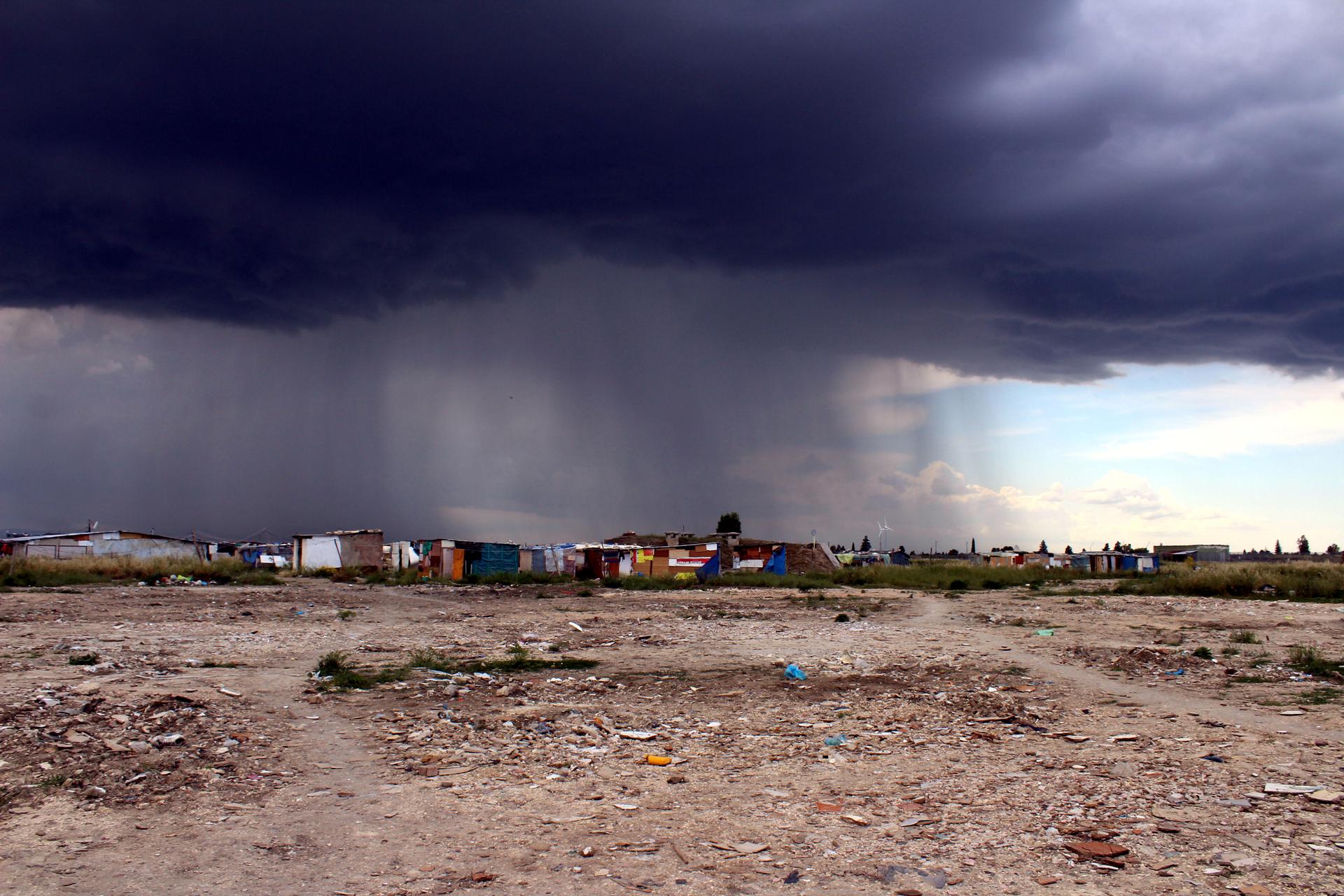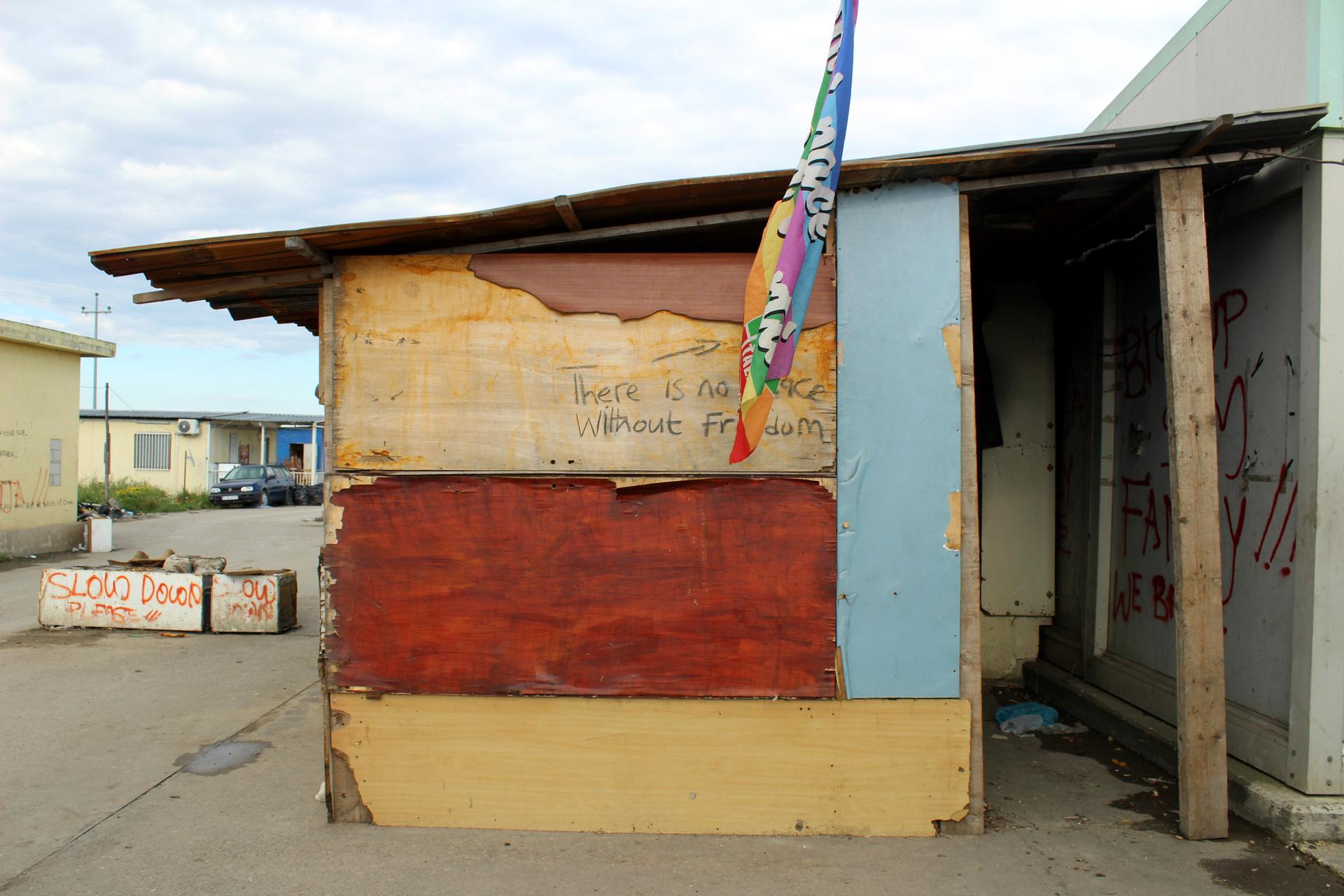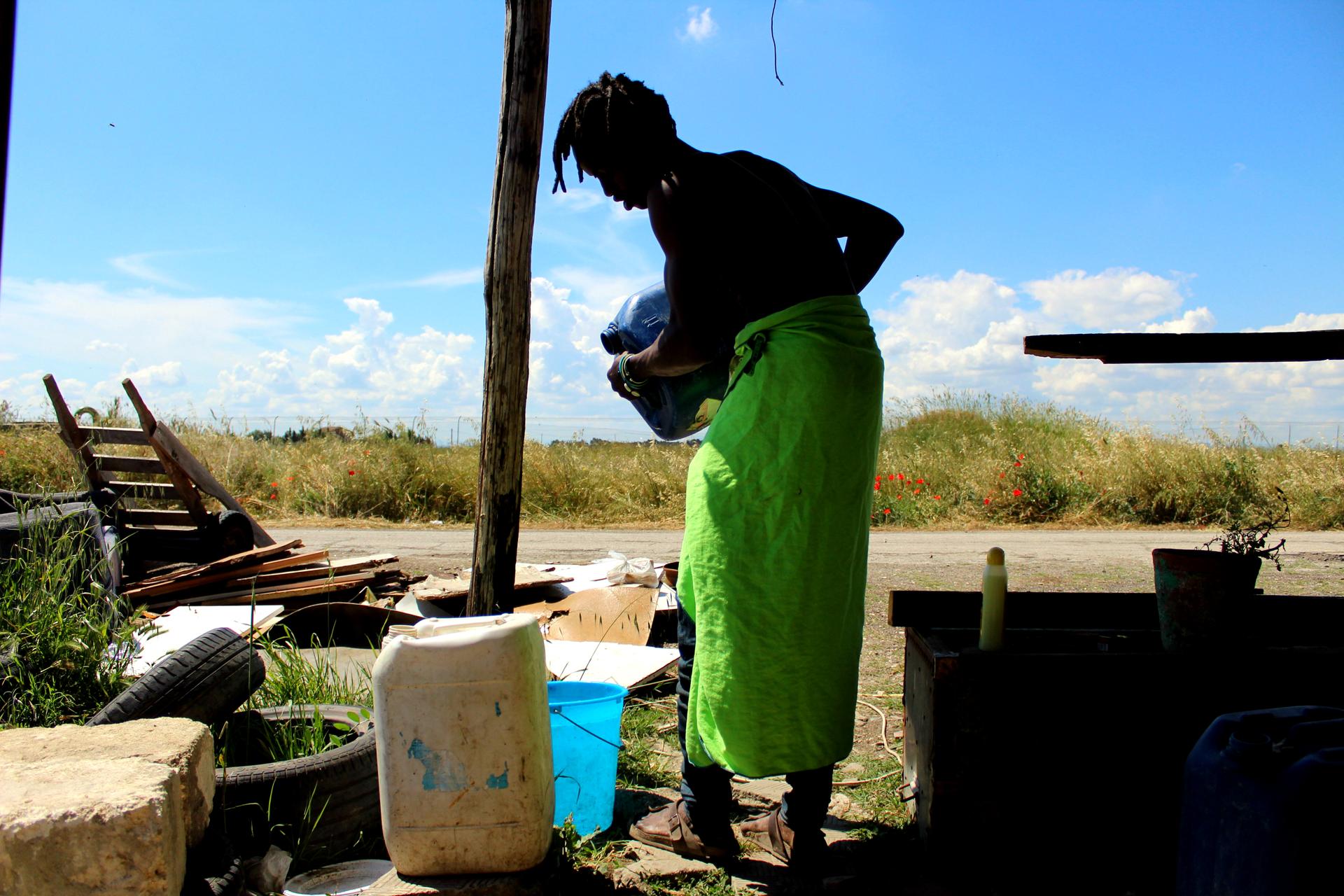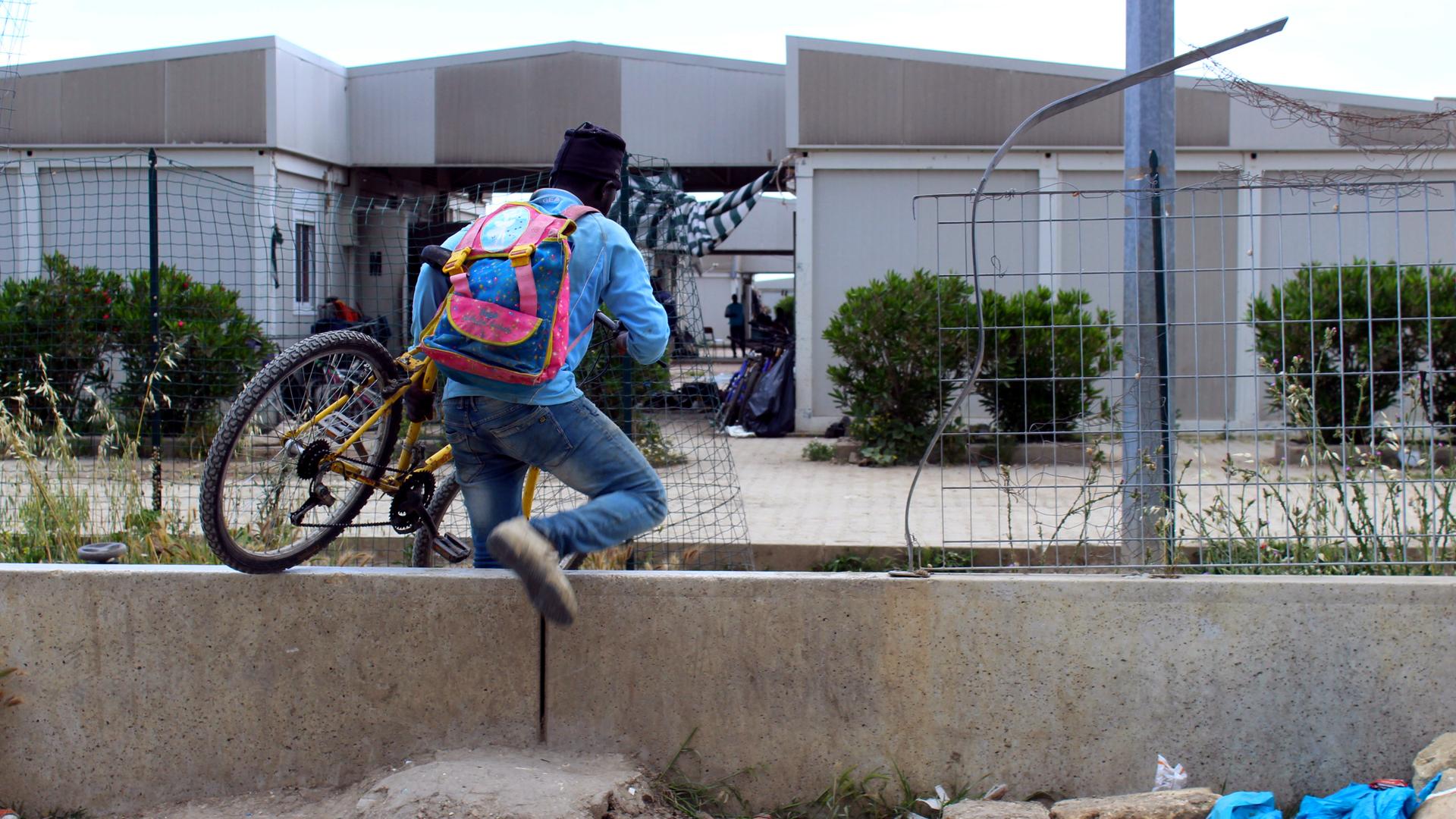Italy’s mafia gets richer as ‘security decree’ strips migrant rights
Omar, 27, a refugee from the Gambia, living in Italy, lifts his bicycle over a wall that separates the outside world from the refugee center he calls home in Borgo Mezzanone, southern Puglia, Italy.
Omar lifts his bicycle over a wall that separates the outside world from the refugee center he calls home. Once over the wall, he walks through a hole in a fence to return to the small room he shares with a fellow Gambian refugee.
He spent the day looking for a job but returned with little hope. As a holder of a humanitarian permit, Omar, 27, has the right to accommodation and basic assistance in Borgo Mezzanone, southern Puglia, Italy, where he has been living for two years.
But his permit expires next month.
Once it expires, Omar will lose the right to accommodation and assistance following the implementation of the so-called “security decree,” a law championed by far-right interior minister Matteo Salvini. With no rights to speak of, undocumented migrants and refugees are vulnerable to exploitation by unscrupulous padroni and criminal gangs, including the mafia, which controls Italy’s agriculture sector.
Related: After ‘Salvini decree,’ refugees face uncertain future
“I don’t know what will happen to me after that,” he says. “I hope I can find a job with a contract, but not here.” He waves his hand toward the sprawling “ghetto” next to the center — a collection of wood, iron sheet and plastic shacks where migrants live and work picking tomatoes, oranges, asparagus and other seasonal crops. Crop pickers often work up to 12 hours a day for as little as $2.80 an hour.
Officially adopted last November, the law abolished humanitarian protection permits and replaced them with six types of “special residency permits,” which are only granted to people who are victims of conflict, natural disasters or domestic violence. The decree also cut funding for Italian courses, vocational training and other integration programs, and shut down several migrant centers across Italy.
“I can’t end up there. Does this look like a life to you?”
Dozens of settlements like these dot the Italian countryside, especially in the southern regions of Puglia, Calabria and Campania. These are fertile and intensely farmed lands that produce tons of fruit and vegetables destined for Italian and international markets every year. They also happen to be well-known mafia strongholds.

“There is no question that there is a direct link between the decree and the exploitation of migrants by the mafia. … We are seeing a growing number of asylum-seekers moving to the ghettos like San Ferdinando and Rosarno, where they are easily exploited. … Their very humanity is violated, destroyed by economic interests.”
Marco Omizzolo is a sociologist and co-author of “Caporalato: An Authentic Agromafia.” His work against the “agromafia” has earned him a knighthood, but also means he must now live under armed guard.
“There is no question that there is a direct link between the decree and the exploitation of migrants by the mafia,” Omizzolo says. “We are seeing a growing number of asylum-seekers moving to the ghettos like San Ferdinando and Rosarno, where they are easily exploited,” he explains. “Their very humanity is violated, destroyed by economic interests.”
The agromafia defines the food and agriculture sector across Italy — and even across Europe. Italy’s crime syndicates — the Calabrian Ndrangheta, the Neapolitan Camorra and Puglia’s Quarta Mafia — all have a stake in every step of the food chain, from production to distribution.
Related: This Italian city has long welcomed immigrants
According to the latest data, the agromafia business is worth $27.5 billion and has been growing steadily by an average of 10% per year.
Fiammetta Fanizza, a sociologist who studies the agromafia in Puglia and across Italy and who has co-authored the book with Omizzolo, says that organized crime has infiltrated local councils, trade unions and the committees that award European Union subsidies and tenders.
By taking advantage of the economic crisis, she explains, the mafia has been able to buy up hectares of land, farms and companies through which it launders its money.
“While until a few years ago it was possible for a landowner to stay out of it, the situation has gotten worse. There is a lot of extortion and pressure on farmers.”
“While until a few years ago it was possible for a landowner to stay out of it, the situation has gotten worse. There is a lot of extortion and pressure on farmers,” says Fanizza. In addition to money laundering, the mafia creates counterfeit products such as olive oil and buffalo mozzarella, defrauding the European Union out of billions of euros in subsidies.
“And where is the first place you can cut costs?” asks Fanizza. Readily available, cheap labor in the form of vulnerable migrants lies at the core of the mafia’s business, she says.
The loss of protection means that thousands of people will become “illegal” immigrants from one day to the next. According to a report by the Italian Institute for the Study of International Politics (ISPI), the number of “illegal migrants” is expected to grow to 670,000 by 2020 — an increase of 140,000 — as a direct result of the decree.
A lack of documents excludes people from legally working, renting and pursuing an education, pushing them instead to the margins of society.
“If you need to compete in the globalized market, the first place you can cut costs is on labor. That is why migrants are kept in these conditions, without documents, cut off from society and from their own culture: slaves at your disposal, with no other options.”
“If you need to compete in the globalized market, the first place you can cut costs is on labor. That is why migrants are kept in these conditions, without documents, cut off from society and from their own culture: slaves at your disposal, with no other options.”

On a cool May night in Borgo Mezzanone’s makeshift migrant camps, six men sit in a small shack that has been hooked up to the electricity mains via a jumble of wires. Everyone’s attention is turned to the TV, where scenes from the series “Spartacus”flicker light and dark. Suddenly, a cheer: “Spartacus is leading a slave uprising, and he’s winning,” says Baba, a tall, shy Gambian man who is serving up generous piles of spicy rice and meat. His name was changed due to his precarious legal status.
Later, the men crowd around Lamin, a 27-year-old from Senegal. He’s holding up his phone, and a woman’s irate voice is playing. The guys giggle, breaking into a full-bellied laugh when the message ends. “It’s my mother,” says Lamin. “She saw my dreadlocks for the first time and she’s mad at me.” They exchange stories about their mothers discovering they’d grown dreadlocks and beards since moving to Europe.
Do their mothers know that they live in a place like this? “No, I could never tell her, it would break her heart,” Lamin says. “The only important thing is that, whatever happens, I tell her that I am doing well and that things are OK.” The others nod silently.
Lamin has all the Italian documents he needs, as well as a regular contract with a local farming company, but he is unable to break out of the cycle of poverty and exploitation that keeps so many in the migrant camps. “My contract says I should be getting €6 ($6.72) an hour, but I only get €4 ($4.49).”
Some people have been in the camps for years, trapped in never-ending cycles of asylum applications, rejections, appeals and bureaucratic pitfalls.
“This was not supposed to be my life.”

Moussa, in his early 20s and from Conakry, Guinea, is undocumented. His name has been changed due to his pending legal status. “I’m always straight,” he says, proudly. “I never do anything like sell drugs or any of that stuff.” For years he tried to get his documents, but has now given up and survives by selling contraband diesel and ferrying fellow migrants to and from work in his falling-to-pieces car. “This was not supposed to be my life,” he says.
He dreams of going home to spend time with his dying grandfather, and to help his mother with his younger siblings. “But I cannot go back like this, a failure. I was supposed to do something with my life.”
Moussa doesn’t have a driving license, so every morning he engages in a half-hearted game of cat and mouse with the local police. “What are they going to do about it anyway? Without us, everything would stop.”
Migrant crop pickers are indeed essential to the Italian economy, says Fanizza, and to the lifestyle Europeans enjoy. Yet they are confined in dirty and dangerous slums, far from cities and used as scapegoats for political gains.
“When migrants are treated this way, we are leaving them no choice. They are desperate, exhausted, they don’t have a way out,” she says. “It’s the perfect gift for organized crime.”
